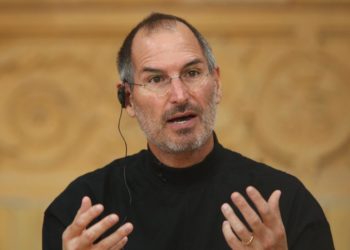STOVALL, N.C. – Roughly 650,000 people here have signed up for Medicaid since the legislature expanded it 18 months ago – the culmination of a years-long effort in this politically split state. But now they are in danger of losing it under provisions in President Donald Trump’s One Big Beautiful Bill Act.
In signing that law, Trump approved more than $900 billion in cuts to Medicaid over the next decade.
Those cuts are colliding with state budget challenges, imperiling the future of Medicaid in states such as North Carolina.
Devdutta Sangvai, the state’s top health official, told legislators in a letter last week that North Carolina will slash Medicaid payments to doctors, hospitals and other providers starting Oct. 1. He attributed the cuts to the GOP-led legislature declining to fully fund the program. New administrative costs to restrict eligibility under the federal law are among the long-term factors that risk “a fundamental erosion of the NC Medicaid program,” he wrote.
“Despite careful efforts to minimize harm, the reductions now required carry serious and far-reaching consequences,” Sangvai wrote. He said that reduced rates “could drive providers out of the Medicaid program, threatening access to care for those who need it most.”
Republican leaders have pushed back, suggesting that health officials could have found less disruptive ways to trim Medicaid spending.
Cuts to Medicaid affect more North Carolinians than ever before. The state’s Medicaid rolls swelled nearly 30 percent, to 3 million people, after state Republicans dropped their decade-long opposition to expanding the program under the increasingly popular Affordable Care Act and worked with Democrats to broaden eligibility.
Before that expansion, Medicaid mainly covered people with low incomes who were disabled, had dependent children or were pregnant. But now, in most states, just about anyone earning up to 138 percent of the federal poverty threshold ($22,000 for a single person and $44,000 for a family of four) is eligible.
Previously, these low-income earners had fallen through the cracks of a patchwork insurance system. Many had no employer-sponsored coverage and didn’t earn enough to qualify for subsidized plans sold on Affordable Care Act marketplaces.
But under Trump’s new law, millions of Americans are projected to drop out of Medicaid under stricter rules to qualify for the insurance and stay enrolled. That in turn will result in states receiving fewer Medicaid dollars from the federal government, which covers about two-thirds of the costs.
Sen. Thom Tillis of North Carolina cast one of the few GOP votes against the bill, saying Medicaid cuts put his constituents at risk.
Those people face uncertain futures as Trump’s law makes it harder for states to keep Medicaid budgets balanced.
This is how Medicaid expansion changed some of their lives, and how their lives could change again.
– – –
Preventive care is at risk
In April, Sonya Poole, 64, visited a hospital when she had a bad case of bronchitis. She learned she had two spots on her lungs. Now that she’s on Medicaid, Poole can afford to see a lung specialist twice a year to check whether they’re growing.
“It’s a big relief, because then I was like, ‘I can’t go to the doctor, I can’t pay for it,’ said Poole, sitting in a tiny clinic exam room in Stovall, a town of about 300 people on Highway 15 in the northern part of Granville County.
Poole, who used to work cutting out parachute patterns for the military, had been uninsured her whole life. Her factory job didn’t provide coverage. She said she tried to enroll on Healthcare.gov, the federal insurance marketplace, but never signed up for a plan.
Then, in 2021, she started bleeding. It was uterine cancer.
Poole got her cancer diagnosis that December and underwent a successful surgery a month later to remove the cancerous cells. Because she had no insurance, she pays $100 a month to chip away at her bill. The hospital’s charity-care program helped cover follow-up appointments.
Workers at the Rural Health Group clinic in Stovall helped her sign up for Medicaid as soon as expansion kicked in at the end of 2023. Now insured, she said she had no reason to hesitate to get those lung spots checked out.
Poole will become eligible for Medicare next year before the new Medicaid changes kick in. But she’s the kind of patient experts worry could lose Medicaid coverage if they fail to turn in the extra paperwork that might be required for them to stay on the program.
North Carolina’s 100 counties, each of which handle Medicaid enrollment differently, will need to verify the eligibility of beneficiaries twice a year instead of annually. More than half the counties already have a monthly backlog in processing new Medicaid applications and renewals, according to Jay Ludlam, deputy secretary for the state’s Medicaid program.
As recently as two years ago, some counties lacked voicemail or had just one phone line. And keeping the county offices fully staffed has become much harder in recent years, Ludlam says. So he’s deeply worried about their ability to handle a new load of paperwork.
– – –
Optional benefits could be cut
Enrolling in Medicaid was one of the first things Charlton Wilson, 45, did when he was released in April from an 18-year stint in prison for armed robbery. He moved to Fayetteville to live with his father and started training to become a medical biller at a mental health provider.
Dental care in prison mostly consists of extractions, he said, adding, with a big smile, that he used Medicaid to get his first teeth cleaning in years. And he received much-needed fillings on one side of his mouth – although the root canal he needs on the other side isn’t covered by Medicaid.
For now, Wilson enjoys having health care benefits.
“At least I can eat on one side of my mouth now,” he said, laughing.
The federal government requires states to pay for certain services, such as hospital visits and lab testing, while giving them discretion to cover other care, including prescription drugs, physical therapy and eye care. When states have faced Medicaid budget shortfalls, they have cut optional benefits such as dental care for adults.
As part of immediate cuts this fall, North Carolina is ending an optional benefit for Medicaid plans to cover GLP-1 drugs for weight loss, in addition to its cuts to provider payments.
– – –
Insurance now hinges on working
Angela Hogan, 52, of Asheboro had Hashimoto’s disease, which affects the thyroid gland, plus arthritis and knee pain before the pandemic. Then, after being hospitalized with covid for two weeks in 2020, she said she developed two conditions that cause dizziness and fatigue.
Since then, the former county government worker hasn’t held a job or driven a car, beyond trying once. She said she applied for disability but was rejected – an experience shared by many covid long-haulers who doctors say are unable to work.
Before receiving Medicaid under the expansion, Hogan used her partner’s health savings account to pay for medications and oxygen tanks. After the fund dried out, she struggled to pay for care.
She said she sees a half-dozen specialists for various conditions.
Trump’s new law will also require most people on Medicaid expansion to work, go to school or volunteer at least 80 hours a month, starting in 2027.
The Urban Institute, a liberal think tank, has estimated that between 171,000 and 195,000 North Carolinians insured through Medicaid expansion could lose coverage under the new work requirements, mostly because they don’t meet verification conditions and not because they don’t want to get jobs.
The requirements can be especially hard for people who work uneven hours, or in seasonal or informal jobs, according to Medicaid researchers.
Hogan said she wants to work but still doesn’t feel well enough. She said she is often plagued with brain fog and fatigue and becomes dizzy when she tries to drive. She volunteers about 20 hours a week for a nonprofit that helps to coordinate disaster relief, but her hours vary depending on how she’s feeling.
“I just love being there for people,” Hogan said. “That’s what I want to do more than anything.”
North Carolina’s other senator, Republican Ted Budd, voted for the GOP bill, saying work requirements are reasonable.
“We’re giving able-bodied adults on Medicaid a choice to work or volunteer if they wish to continue receiving Medicaid benefits,” Budd tweeted in June.
– – –
Doctors worry about rural patients
Alison Bartel teared up as she talked about how Medicaid expansion transformed the lives of her patients in Stovall, where the only places to grab lunch are the two dollar stores down the street. She went to medical school with help from the National Health Service Corps, which awards scholarships to students who promise to work in underserved communities.
Most of Bartel’s patients are impoverished. Some don’t know how to read. For them, she’ll use a Sharpie to draw a little sun or little moon on their pill bottles so they know when to take their medication.
She worries the stricter verification and work requirements could cause her patients to fall out of the program. If overburdened counties don’t make patients aware of the new rules, they could lose coverage without knowing it. And that can carry serious consequences.
Medicaid patients can see a specialist or buy a prescription medication for just $4. Uninsured patients often avoid those services because they can’t afford them.
“The saddest thing is when I prescribe something that is $4 that changes their whole life,” Bartel said. “This tiny thing can make a huge, huge difference.”
Related Content
Ukraine scrambles to roll back Russian eastern advance as summit takes place
Her dogs kept dying, and she got cancer. Then they tested her water.
D.C.’s homeless begin to see the effects of Trump’s crackdown
The post As Medicaid cuts loom, North Carolina shows the stakes appeared first on Washington Post.




